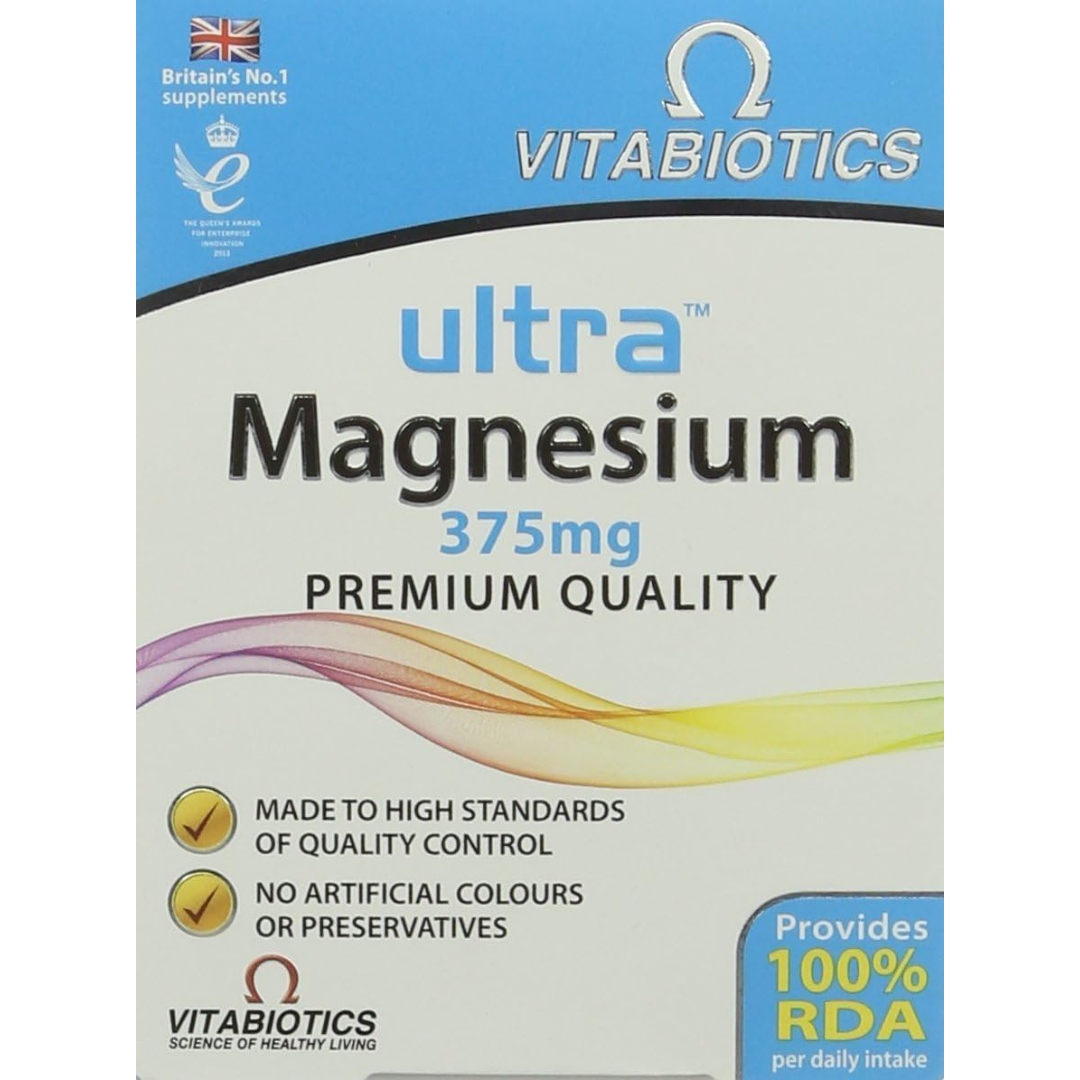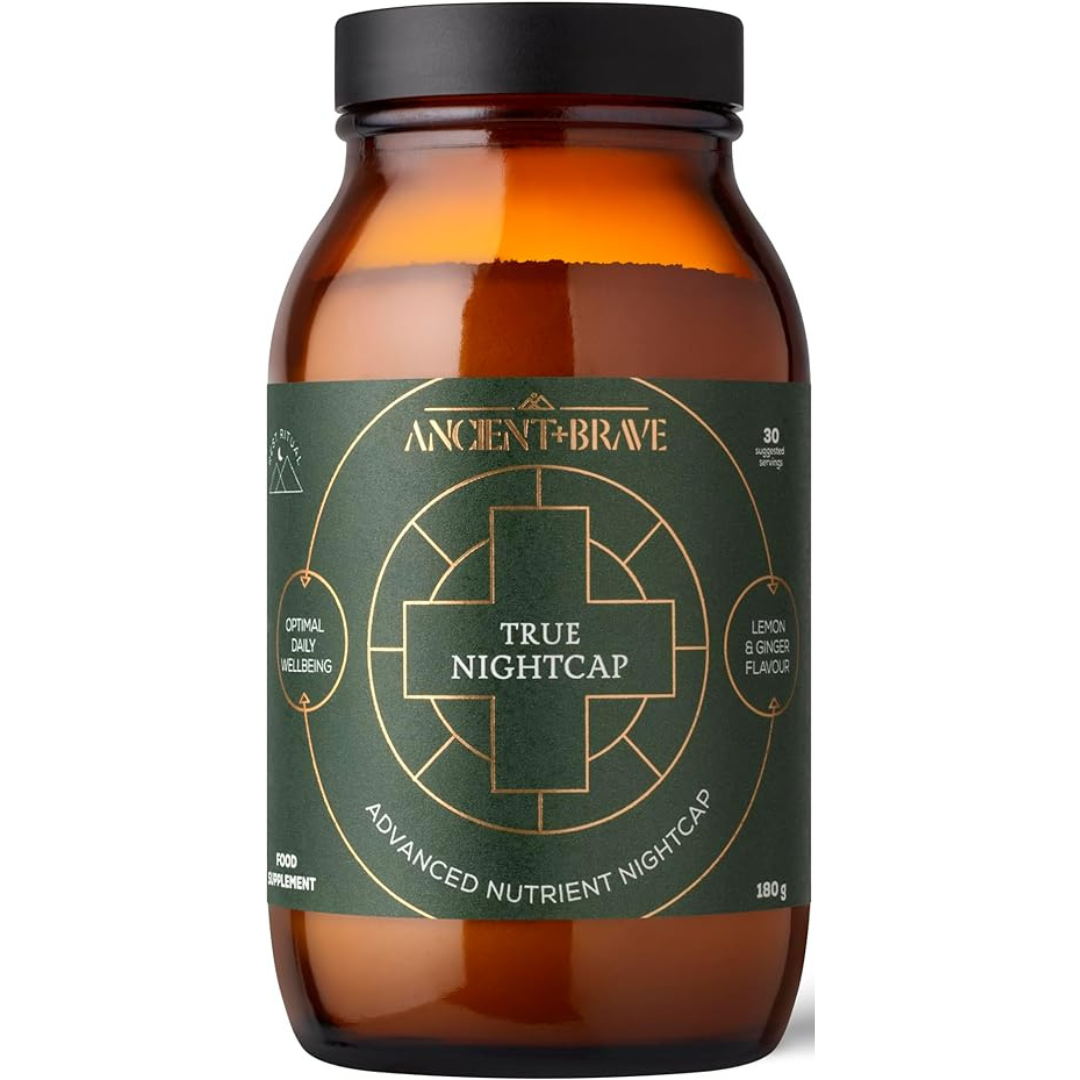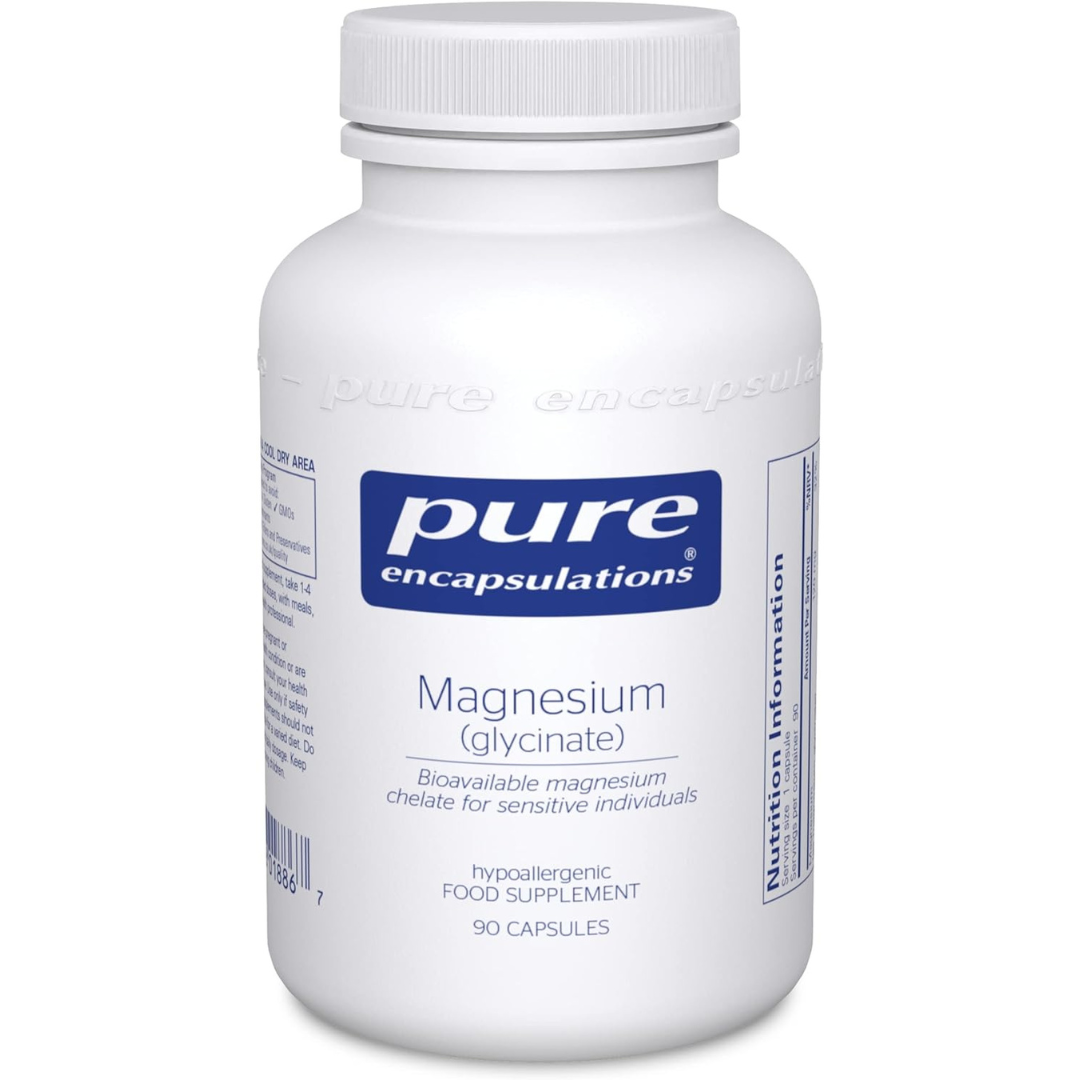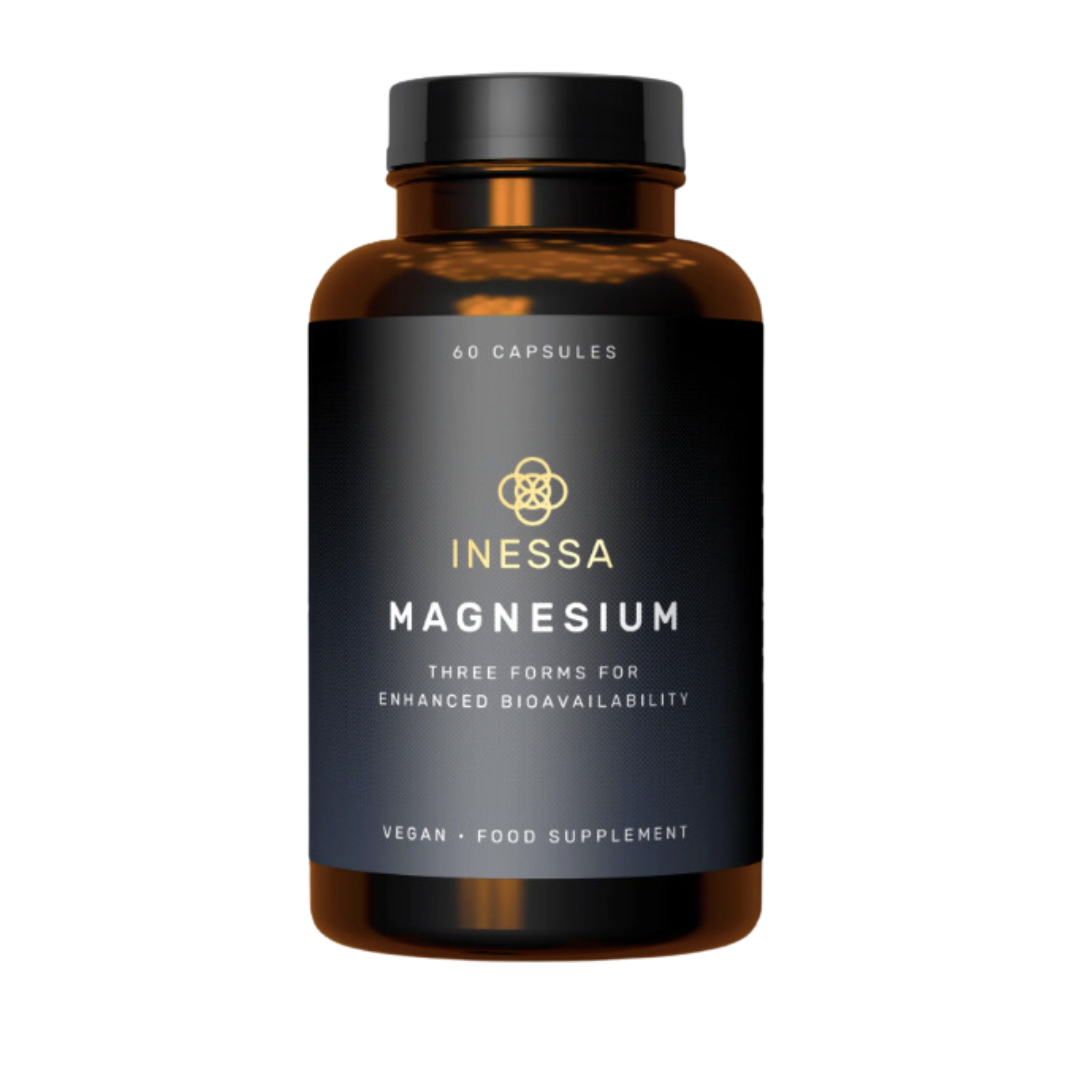
Magnesium supplements might seem a little simple to be the biggest trend of the moment, especially in a world where health routines tend to be OTT (read: sleepy girl mocktails and metabolism tracking). Alongside the likes of Ashwagandha and creatine, the mineral is non-stop trending right now - and it might be one of the most sensible health hacks we've come across.
You see, up to 15% of healthy women are thought to be deficient in magnesium, according to a 2021 paper from the Nutrition and Food Science Journal, with a further BMC Pregnancy and Childbirth paper finding that it might be even more, with up to 79% of pregnant women and 55% of women with hormonal conditions low in the mineral.
In short: there are a lot of us not getting enough magnesium. Wondering why? Well, magnesium needs to come through our diets, so if you're skipping foods high in magnesium, then you might not be eating enough. "Magnesium is found in a variety of foods including dark leafy greens, wholegrains, nuts and seeds, Brazil nuts and chia seeds," says Maz Packham, nutritionist at Nourishful Nutrition. "Do note, though: increasingly poor soil quality can mean we are not getting as much of this important mineral through our diets as we used to."
Bottom line: Even if you're eating loads of the mineral, magnesium levels can be depleted through our lifestyle. "High stress levels, excessive alcohol intake and some medications can deplete magnesium and we can also lose it through sweat during intense exercise," she goes on.
She's here to explain exactly why your magnesium levels are so important. And I - Chloe Gray, a Health and Fitness Editor - want to share what happened when I supplemented with magnesium, too. Don't miss our guides to the best stress supplements and menopause supplements, while you're at it.
Magnesium supplements: your guide
What is magnesium?
"Magnesium is a mineral that is needed for over 300 different reactions in the body and is involved in everything including sleep, mood, bone health, blood pressure and energy production," details Packham. "As an electrolyte, is also plays a role in maintaining fluid balance in the body, nerve and muscle function and helps regulate hydration." That's a lot of reasons to top up on your magnesium - and women need around 270mg a day of the nutrient for health, according to the NHS.
With 100g of spinach containing 79mg of magnesium, or 10g of cashews giving you 25mg of the mineral, it should be pretty simple. But remember: our lifestyles can drain the magnesium bank, meaning we're in constant catch-up. One study showed people with alcohol use disorder had magnesium levels around 32% less than controls due to "the alcohol's effects on the kidneys and liver and their functions resulting in decreased absorption and transportation [of minerals]." A Magnesium Research paper also reported that strenuous exercise increases the amount of magnesium lost in urine and sweat and may lead to a 10 to 20% increase in requirements.
@drmaryclaire ♬ Monkeys Spinning Monkeys - Kevin MacLeod & Kevin The Monkey
What are the benefits of magnesium?
Given how vast magnesium's role in the body is, the side effects of being low or deficient in magnesium also range a lot. "Low magnesium has been linked to neurological problems like migraines as well as chronic pain," explains Packham. "Muscle cramps are one of the most common symptoms of magnesium deficiency as the mineral is needed for nerve and muscle function."
Indeed, studies - like a 2022 paper from The Journal of Strength and Conditioning - show that supplementing with magnesium helped ease post-workout muscle pains as well as exercise performance. It's why Epsom Salts - a form of magnesium that you sprinkle into the bath - are so popular among those who train hard. Plus, a 2017 review found that magnesium's impact on muscle health and pain means it's effectively aided period pains and PMS.
Magnesium can also hugely benefit our mental health. "In times of chronic stress, magnesium can become depleted, so it’s worth looking at supplementation to support the body and mind during stressful periods," explains Packham. In fact, the link between magnesium and mood seems to be circular: stress depletes magnesium and low magnesium increases perceived stress and lowers mood, so it's vital to ensure you're getting enough.
Then there's the sleep side. "Magnesium is dubbed nature’s tranquiliser for its relaxation benefits," says Packham. "It’s been proven to work on GABA receptors in the brain - GABA is a calming neurotransmitter that supports relaxation."
Who should supplement magnesium?
Supplementing always needs to be done with your own individual health in mind. The NHS doesn't advise that anyone goes over 400mg of magnesium a day, so be mindful not to over-supplement, especially if you eat a lot of magnesium-rich foods.
"Anyone with kidney problems should seek advice from an expert before supplementing magnesium too," says Packham. As ever, always check with a medical professional before adding supplements to your diet.
How, when and what type of magnesium to choose will also come down to your individual requirements. "There's very good evidence that magnesium glycinate can support sleep, while magnesium citrate is good for people with constipation as it quickly stimulates muscle contractions in the intestines which helps to cause a bowel movement - though this can cause diarrhoea in some people," she explains.
"For women in their perimenopausal and menopausal years, magnesium is an important mineral to support bone health, working with vitamin D to facilitate absorption of calcium in the gut," she goes on.
So, when should you be taking yours, if you're keen to give it a try? Magnesium can be taken at any time of day, she says, "but I recommend my clients take it in the evening with food to get the most from its relaxing benefits."
@drfrancescaleblanc ♬ original sound - Hormone Health w/ Dr. LeBlanc
"I tried magnesium supplements and couldn't believe the difference they made"
As a Wellness Editor, I get to try my hand at a lot of supplements. So the first time I supplemented with magnesium, I didn't even know it. I was testing Holland & Barrett's Gut Powered Night Capsules - a blend of probiotics, vitamins, minerals and herbal blends designed to help you sleep - to try and stop waking up in the night. Spoiler alert: it worked a treat. I felt so relaxed, slept well (with no waking) and felt more energised during the day.
Spurred on by my positive experience, I decided to properly dig into whatever magic ingredients had helped me out - and it seemed magnesium was the hero. Turning back to magnesium, this time with VitaBiotics Ultra Magnesium, within days, my body felt less stressed out and my muscles way calmer (my muscles had been feeling achy and heavy after workouts). I even noticed that my period cramps were a little more manageable during my next time of the month.
I don't believe in continuously living by supplements and much prefer a food-first approach, but every time I've felt like I could use a little more love I've turned back to magnesium and been blown away. In fact, as I'm writing this, I've just re-stocked some of my favourite products to support my sleep cycle and to take in the lead-up to my period, just in case.
For the supplements I recommend, keep scrolling.
4 best magnesium supplements:
1. Best affordable magnesium supplement

What we thought when testing? An affordable tablet that contains 100% of your daily recommended allowance of magnesium in just two pills.
2. Best magnesium supplement for sleep

What we thought when testing? Maz Packham recommends this for topping up her magnesium. "Containing magnesium and the amino acid L-Glycine, this is a dream combination for sleep support," she says. Not to mention, the brand is a certified B Corp.
4. Best magnesium supplement for relaxation

What we thought when testing? Another recommendation from Packham, this is a great choice for those who just want to top up their levels of magnesium without worrying about overdoing it.
2. Best bioavailable magnesium

What we thought when testing? These capsules contain three types of magnesium (marine magnesium, magnesium bisglycinate and magnesium threonate) all selected for their superior bioavailability.
What we thought when testing? These capsules contain three types of magnesium (marine magnesium, magnesium bisglycinate and magnesium threonate) all selected for their superior bioavailability.
What we thought when testing? These capsules contain three types of magnesium (marine magnesium, magnesium bisglycinate and magnesium threonate) all selected for their superior bioavailability.







